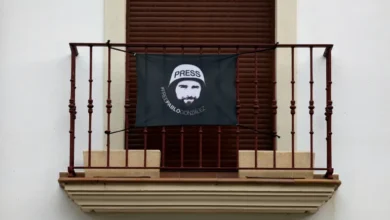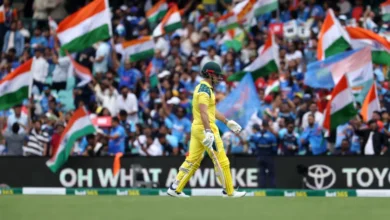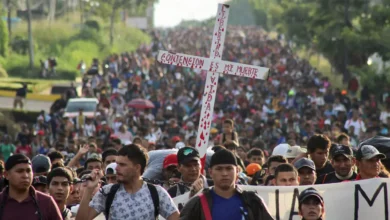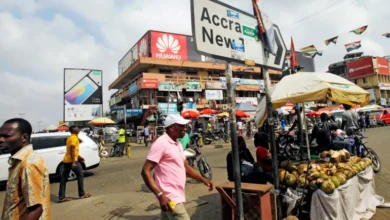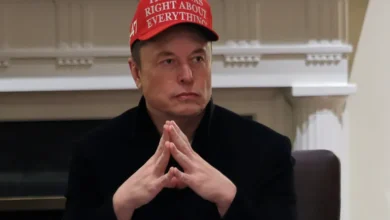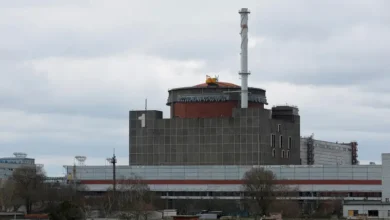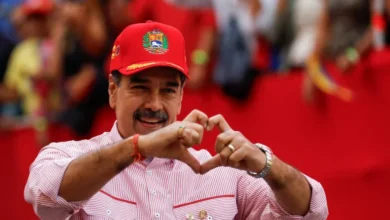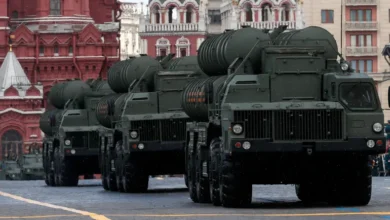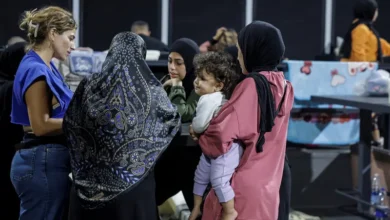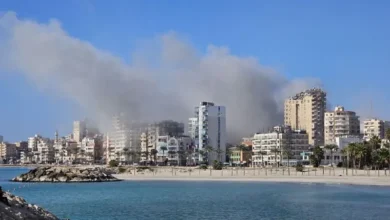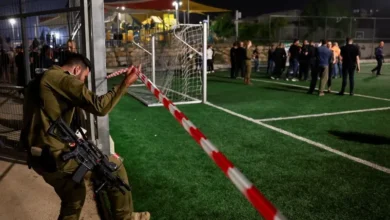Sri Lanka election results live: Dissanayake, Premadasa in second count
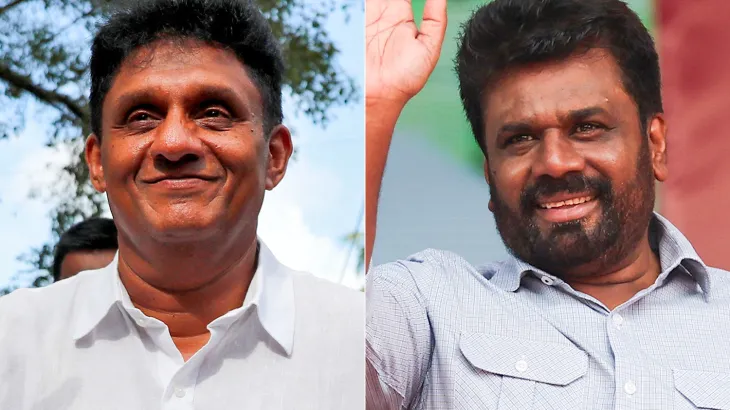
- Second round of vote-counting between Marxist-leaning Anura Kumara Dissanayake and opposition leader Sajith Premadasa to determine the winner of Sri Lanka’s presidential election.
- No candidate got 50 percent plus one votes required to secure an outright victory.
NPP supporters ‘delighted’
Election Commission sources have told Al Jazeera that the final result could be known within the next 90 minutes or so.
“There is a lot of delight from the NPP and their supporters, the people who rallied behind them heeding their call for change and support to bring a new era to Sri Lanka,” Al Jazeera’s Minelle Fernandez, reporting from Colombo, said.
First 12 months crucial for new president
We have some more comments from Paikiasothy Saravanamuttu, executive director of the Colombo-based Centre for Policy Alternatives.
The political analyst says he expects Dissanayake’s first “real test” to come within six months to a year from assuming office – if he is declared the winner of the presidential election.
“If he doesn’t put a big fish behind bars for corruption, I think then he’ll face certain problems,” he told Al Jazeera, citing Dissanayake’s anti-corruption crusade during the campaign.
“At the end of the day, his welfare, his subsides and all the things he’s talked about in the campaign – the question is, where is the money going to come from?”
Dissanayake’s party tells supporters to be patient
Vijitha Herath, a lawmaker from Dissanayake’s NPP, says party officials were confident of victory but called on supporters to be patient as the count dragged on.
“The Election Commission must complete the process of counting preference votes and that is what is delaying the final result,” he said in a video message posted on NPP’s social media accounts.
Official first count results
The first count showed Anura Kumara Dissanayake leading the race with about 42 percent.
In second place was Sajith Premadasa, at almost 33 percent.
Ranil Wickremesinghe was a distant third with about 17 percent.
Dissanayake seen as ‘one of us’
Paikiasothy Saravanamuttu, executive director of the Center for Policy Alternatives, tells Al Jazeera that the general feeling in the country is that there is going to be “a change of regime”.
“But also, more importantly, a change of political culture and the way things are done,” he said, citing Dissanayake’s campaign pledges.
“Certainly the major plank of his campaign was anticorruption – and he’s talking about coming down very hard on all of that,” Saravanamuttu added.
“The most important thing, I think, is that he is very much a man of the people; he is not from a dynasty, he is not from Colombo, and therefore he is seen as ‘one of us’.”
‘Unlikely preferential votes to make a big difference’
The first round finished with the final numbers being 5.6 million votes for Dissanayake and 4.3 million votes for Premadasa.
Even though there is a gap of 1.3 million votes between the two, the Sri Lankan Constitution requires a winner at a presidential election to poll 50 percent plus one vote. Since that hasn’t happened, they have to go into round two, which is why the preferential vote count has kicked in.
That is happening, and we have heard that most of this counting has finished.
And what we are hearing from inside sources, from the commission and those involved in the process, is that it will be difficult for the preferential votes that are being totalled up to make a real, massive change.
So it is almost a given that Dissanayake is the victor. But given the procedures and the way the system works, they will wait for the additional votes from the preferential ballots to be added and then declare the winner.
‘Not a quick fix’
In March 2023, crisis-hit Sri Lanka agreed to a 48-month emergency loan. As with all IMF deals, it came with strict conditions.
In exchange for funds, Wickremesinghe was forced to remove electricity subsidies and double the rate of value-added tax.
“Wide-ranging austerity also included a sovereign debt restructuring,” Katrina Ell, director of economic research at Moody’s Analytics, told Al Jazeera.
Refinancing operations typically involve exchanging old debt instruments for new, more affordable ones. Sri Lanka’s foreign and domestic lenders had to accept equivalent losses of 30 percent as part of the IMF agreement.
“All these measures do not offer a quick fix,” Ell said.
Still, “Sri Lanka’s economy has shown meaningful signs of improvement” since 2022, she said.
The rupee has stabilised and inflation has come down sharply from its 2022 peak. The World Bank forecasts the economy to expand 2.2 percent in 2024, following two straight years of negative growth.
On the other hand, real wages remain significantly below pre-crisis levels and the country’s poverty rate has doubled, according to the World Bank.
Voters aspired to have ‘different political practices, institutions’
Pradeep Peiris, a political scientist at the University of Colombo, says the result “clearly shows the uprising that we witnessed in 2022 is not over”, referring to the mass protests which forced then leader Gotabaya Rajapaksa to flee and resign.
Speaking to Reuters, he said voters cast ballots “in line with those aspirations to have different political practices and political institutions”.
He added that Dissanayake “reflects these aspirations and people have rallied around him”.
‘Demand for change, anticorruption action’
Paikiasothy Saravanamuttu, a political analyst and executive director of the Colombo-based Centre for Policy Alternatives, has told Al Jazeera that Dissanayake’s strong showing “reflects the demand for change” in the 2022 so-called Aragalaya protest movement, especially among young voters.
He also said it echoes the calls “for strong action in respect of corruption” and hopes for “a political culture of transparency and accountability”.
Commenting on Dissanayake’s economic agenda, Saravanamuttu said the candidate “promised a reduction of taxes, looking after the bloated public service, focusing on tourism and local economic ventures”.
“What he hasn’t been able to do is to indicate in a clear and coherent plan as to where the money for all this is to come from. There is also concern about the expertise and experience of his economic team who have not really been tested before and some of whom come from the original JVP Marxist background,” he noted.
Dissanayake’s election showing ‘phenomenal’ achievement
In the last election, the NPP alliance had about 3 percent of the vote.
They’ve never had more than a handful of parliamentarians in the House at any given time.
So this is just phenomenal that their representative has managed to be within sight of the presidency, the highest office in the land.
It’s a mix of factors, when we talk to the people, as well as analysts and observers.
Firstly, it’s very much the way AKD, as Dissanayake is known – even the acronym points to a new energy, a sort of cooler image – has engaged with people across the country, talking about making a difference, promising that he will be different from the old guard, the same old politics, the same old corruption – a promise which a large number of people has believed.
Also, there’s people’s absolute disgust and disillusionment with the old guard, the same old faces of the old political process – and that’s also a reason why his party has done so well.
JVP’s insurrections
Dissanayake’s JVP has previously led two failed insurrections – in 1971 and 1988 – against elected governments that led to the deaths of thousands of people as security forces crushed the rebellions.
The party later abandoned violence and turned to electoral democracy.
Soon after assuming leadership of the JVP in 2014, Dissanayake promised that the party would not take up arms again and committed to coming to power through elections.
He also created the NPP coalition to distance the JVP from its violent past and win broader support.
